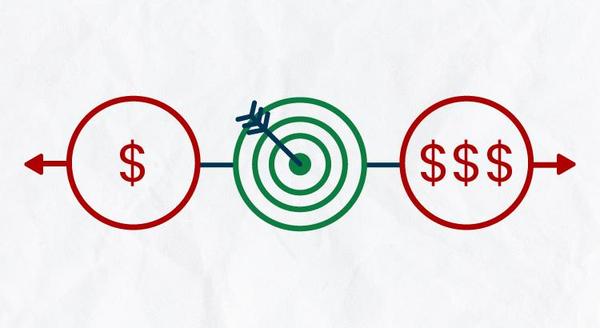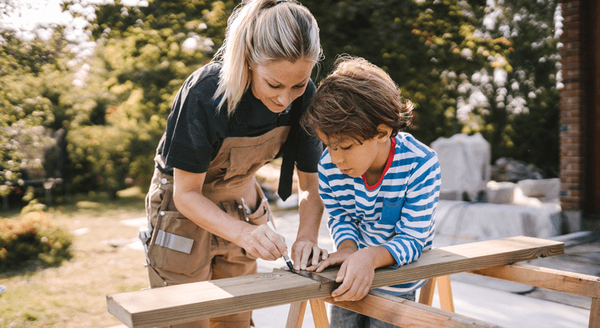
Home Staging 101
Have you ever watched HGTV and wondered how every home always looks perfectly put together? The answer to this is staging. Home staging goes beyond just cleaning and decorating your home. Staging is adding decor, arranging furniture, and prepping your home to look perfect for listing photos, listing appointments, and open houses. When a home is staged, potential buyers see exactly where furniture should go and how each room is laid out. When a home is not staged, potential buyers are only focusing on the visible issues the home may have. Not only does staging make your home look like an HGTV dream or like it belongs on Pottery Barn's homepage, but it can actually speed up the sale of your property. 83% of buyers’ agents said a staged home helped buyers visualize the property as a future home, according to NAR 25% of buyers’ agents said potential buyers increased their offer between 1 and 5% on a staged home, according to NAR 85% of homes surveyed were sold for 6-25% more than homes that were not staged, according to HSR Certified Professional Home Stagers So now that you know how important staging is, what’s next? Do you hire a stager? Do you do it yourself? Will your real estate agent help? Do you stage virtually? It depends. Every option has its benefits, and some require more time or more money. DIY Staging If you’re looking for a more cost-effective option, it may be best to stage your home yourself. First, you’ll want to start with cleaning, decluttering, and depersonalizing. This is a great excuse to finally get around to that annual cleaning from earlier in the year that you’ve put off. Each room should only have what is absolutely necessary. Throw out anything you don’t need or keep things tucked away in a bin during open houses and showings. You’ll also want to remove any personal photos or decor around your home, including anything religious or political. The less personal your home is, the more a potential buyer will imagine themselves living in your space. Once everything is clean, you’ll want to start staging the important rooms first. The kitchen, living room, and master bedroom are what sell your home. Focus on these rooms and then you can work your way through the additional living spaces. There are plenty of inspiration photos for current trends online, but here are a few tips to get you started: Virtual Staging Virtual staging allows you to rearrange furniture, add decor, and still make your home look attractive to buyers but everything is online — and cheaper. Because virtual staging is done on the web or with staging software, you don’t have to spend funds on new furniture, decor or expend time rearranging everything. This method saves you time and money while still getting the same results as traditional staging. The only required cost is the digital software and most services charge a flat fee per room staged. Hire a Professional Stager If you do have more money to spend or don't know anything when it comes to home decor, it’s probably best to hire a professional. Selling your home is an emotional process so viewing your home objectively when staging can be a difficult task. As you already know, staging your home can help speed up the sale and potentially get you higher offers. If you outweigh the costs with the benefits, you’ll find hiring a professional won’t be as expensive as you think. The average cost for the initial design consultation with a stager can be between $300 and $600. The average cost per month per staged room can be between $500 and $600. It’s important to know that some professionals require a contract of 3 months minimum even if you sell your home within a few days. Most times you can work with the decor and artwork you already have, but if your home is completely empty, this can start to add up quickly. To save some money when working with a professional stager you can opt to hire them for just the important rooms - the kitchen, living room, and master bedroom. If your walls need fresh paint, you can save money here by painting them yourself. You can also gather tips and advice during an initial consultation but still decide to conquer some of these tasks yourself. What do real estate agents do? All agents are different. Some offer staging services, some offer advice, some refer you to a trusted professional or company, and some don’t offer any resources for staging. If an experienced real estate agent has your success in mind, they will offer honest feedback when it comes to home staging advisement.

The Emotional Side of Home Selling
The decision to sell your home isn’t an easy one. In fact, research has ranked selling a home as second to relationship breakups for the most stressful experience in a person’s life. The same survey said Americans are more stressed out about selling their home than planning a wedding, getting fired or even becoming a parent. In other words, it’s perfectly normal to have strong emotions. The good news? Though the experience can feel overwhelming and inspire doubts, it doesn’t have to get in the way of a successful home sale, and there's always a bright side. Here are three stories from homeowners that prove it. The Story: Last Minute Memories Nostalgia seems to unexpectedly hit many sellers like a ton of bricks once they see their home empty and ready for its next owner. Getting caught up in the chaos of moving can only keep your mind busy for so long before you realize what you are about to leave behind. Oftentimes sellers feel the rush towards the end of the process. That’s exactly what happened to Erin, author of The Sunny Side Up Blog. She says, “I walked around room to room. I could see my baby girls running around in dress-ups. I could see our evening routine – giving them a bath and putting them in matching PJs. I could see so many sweet moments between my kids and how fast they grew right in front of my eyes in that house." "It’s not hard to say good-bye to a house. It’s hard to say good-bye to special memories and to the end of an era. A really happy era that I will tuck away and treasure in my heart forever." The Bright Side ☀️ “We feel so blessed to be in our new home, we are definitely going through a bit of a transition. I know it will just take time. I also know that someday, much sooner than I can imagine, I will be walking through the rooms of our new house feeling the exact same way.” The Story: An Empty-Nester’s Adult Kid Confronts The End of An Era In a story from The Atlantic on navigating how empty-nesters navigated the sale of a family home, the story of Alene Bouranova stands out. Bouranova grew up in Kirkland, Washington. She was at school in Boston, Massachusetts when she got the news that her parents had sold her childhood home. “I started crying in the dining hall, just crying all over my plate of pasta,” Bouranova says. “I was not pleased at all. That was my home.” The Bright Side ☀️ Although Bouranova was initially emotional about the sale of her childhood home, she came to terms with the decision and understood the reason behind her parent’s decision. “It’s my parents, and as sad as I was originally, it’s their lives and they can do what they want,” Bouranova says. “I just want them to be happy.” The Story: Moments Of Doubt Despite being a Realtor who has guided many clients through the home-selling process, Nancy Perkins was surprised by how emotional she felt when selling her family’s home of 19 years. In an essay for The Alexandria Times, she writes how she and her husband began to doubt themselves throughout the process after realizing the attachment they had not just to the home itself but to the neighbors and neighborhood. “We started to doubt ourselves. Why did we need to make any changes when this house worked well for us? While we were ready for a new house, we were attached to our home, to our garden and to our neighbors.” The Bright Side ☀️ “Like many of my clients, these thoughts kept me up at night. My fears were alleviated, however, with multiple offers, happy buyers and a quick sale, thanks to smart renovations, good staging and fair pricing.” The Bottom Line There’s no doubt that you won’t ever forget the memories you made in your home, but looking forward to the new memories you’ll create in the future and getting excited for what’s to come can put your mind at ease. No matter if you’ve lived there a couple years or many decades, selling your home can inspire a deep emotional response.

How Do I Know What My Home Is Worth?
Thinking of selling? Want to refinance your home? If so, the first thing you're probably asking yourself is, how much is my house worth? There is no shortage of online home value tools in today's digital world, but how accurate are they? To calculate the actual value of your home, you must consider a broad spectrum of factors. Here's what you need to consider, plus how to get started! How Much Is My Home Worth? Wondering what your house is currently worth? The quick answer is: whatever someone will pay for it. A more comprehensive answer will depend on several variables, including what's happening in the housing market, particularly in your area. For example, is the demand for houses high but supply is low? In this case, you are likely in a seller's market. What your home was worth a year or two ago may no longer represent its current value. When supply and demand are not balanced, values become more of a challenge to determine. So, how do you find out what the value of your house is? You lean on tools and industry experts to paint a clear picture. This leads us to our next question — is one more favorable than the other? How accurate are online valuation tools, and how do they stack up to working with a local industry expert? How Redfin and Zillow Value Your Home If you search "how much is my house worth?" online, you will get dozens of hits, showcasing the top home value estimators. According to NerdWallet, 22% of homeowners in the United States determine the value of their home using this method. The technical term for these tools is "automated valuation model." Two of the big players in this space are Redfin and Zillow. These tools leverage the data available from public records, such as tax assessments and property transfers. Using mathematical modeling, these tools aim to predict the value of your home based on the most recent listing prices and sales in your area. Both companies are transparent concerning their national median error rates. For example, Redfin reports that its current median error rate is just 2.72% for houses for sale and 6.79% for off-market homes. This means that the estimate is within these margins of error half the time. So, for when a home is on the market and sells, Redfin's estimate will be within 2.72% of the sales prices half of the time. In comparison, Zillow reports that its national median error rate for on-market homes is 1.9%, and for off-market homes, that error rate increases to 6.9%. The issue here is that a median national error rate does not represent your local market. So, the error within your local real estate market may be better, or far worse, than the advertised national medians. The Pros and Cons... Both Redfin and Zillow are easy-to-use and convenient, but the price you pay for that is low accuracy. There have even been instances where homeowners (unsuccessfully) sued Zillow because the estimates were so far off. Both of these companies warn users that the estimates provided should be used only as a starting point. The figures provided are not appraisals — they are simply algorithm-based computer estimates. They should certainly not be used as part of a bargaining strategy when selling or buying a home. They are good "estimate tools" — they are not all-knowing tools. Pros Tools like Redfin and Zillow are good starting points, giving you some insight into what you can expect from your journey ahead. The figure you receive can then be discussed with a local industry expert to determine if you can ask less or more depending on a more comprehensive analysis. Cons Online home value tools only consider certain factors because they do not often have access to the same information that a local real estate database has. This lack of information creates skewed results. This means you will only get a partial estimate, resulting in a figure that isn't accurate. These tools are not ideal when dealing with fast-moving markets, especially when homes are selling in a matter of days. That is why an estimate on Redfin may significantly differ from the one you got on Zillow. Nothing Beats Working With a Local Real Estate Agent Online home value tools can provide a good starting point, allowing you to get a ballpark estimate. However, there isn't any substitute for a local industry expert. Unlike most third-party real estate sites, local real estate agents have access to the information you need to ensure greater accuracy. Your local real estate expert will dive deeper than Redfin or Zillow, providing you with a comparative market analysis. They will also be able to give you a more accurate value based on when your house was last renovated, the condition of the property, the type of view you have, the amount of natural light inside, and the list goes on. These are the type of key variables that online estimate tools and the algorithms responsible for estimated values miss.
Categories
Recent Posts










